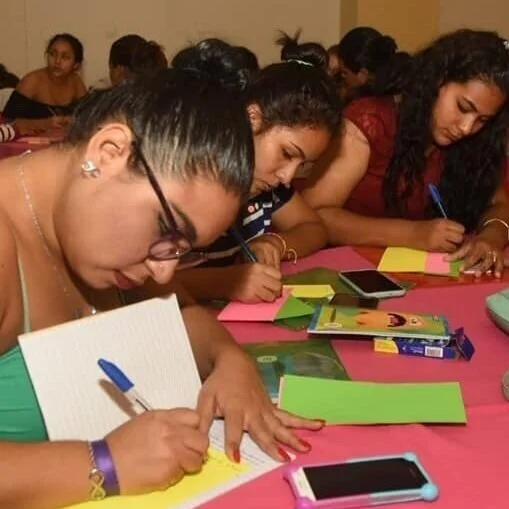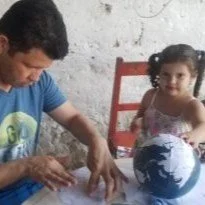NETWORKS
redcam (tHE nETWORK)
The Network is a Central American-wide coalition of seven women’s rights organizations focusing on maquila (sweatshop) workers’ rights. The Network strives to address the root causes of rights violations by initiating changes to labour policies at the national and regional levels. During the 2019-20 fiscal year, the organizations of the Network strengthened their political advocacy capacity and their ability to influence the labour policies of private businesses and governments. The Network focuses mainly on : the right to occupational health and safety; the right to sexual and reproductive health, and; the right to not be subjected to physical violence, sexual harassment or bullying at work.
Central American human rights organizations that form The Central American Network in Solidarity with Maquila Workers: Asociación Mujeres en Solidaridad (AMES) (Solidarity Women’s Association); Asociacion de Mujeres Empleadas y Desempleadas Unidas Contra la Violencia (Employed and Unemployed women’s association united against violence); Organización de Mujeres Salvadoreñas por la Paz (Salvadoran Women’s Organization for Peace); Movimiento Salvadoreño de Mujeres (Salvadoran women’s movement); COLECTIVA DE MUJERES HONDUREÑAS - CODEMUH / 1989 - 2016 (Honduran Women’s Collective).
CoDev Program Area: Human and Labour Rights
Canadian partners: BCGEU Community Social Services Component (since 2016), FPSE (since 2002), HEU (since 2003), HSA (since 2002).
FOMCA
The Federation of Central American Teachers’ Organizations- FOMCA, is a regional federation comprised of 9 teachers’ unions (APUDEP, CGTEN-ANDEN, COLPROSUMAH, COLPEDAGOGOSH, COPEMH, COPRUMH, FREP, PRICPHMA and SEC) from four countries in Central America (Panama, Costa Rica, Nicaragua, Honduras). Through the Presidency, FOMCA carries out action research on the deterioration of social security systems, reforms to teachers’ pension systems, evaluation systems, standardized evaluation mechanisms, and more.
FOMCA plays an important role in studying and denouncing precarious living and working conditions of teachers and education workers. Representatives of each organization meet yearly to analyze the state of education in each country and design common strategies for defending human and labor rights.
FOMCA’s advocacy is mainly geared at national levels, where member organizations influence the creation and monitoring of public policies in education. FOMCA participates in campaigns of the ILO for social security, eliminating workplace violence and harassment; sometimes presenting reports and rights-based proposals for public education to Central American Parliament deputies.
CoDev Program Area: Education — Research and Coalition Building
Canadian partners: BCTF


